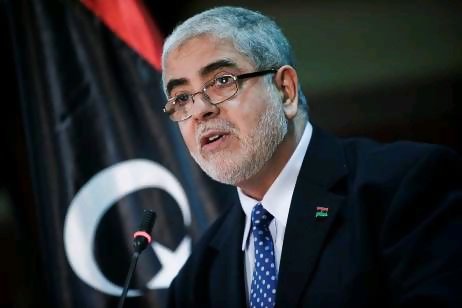By George Grant.

Tripoli, 7 October:
The National Congress has voted overwhelmingly to dismiss Prime Minister-elect Mustafa Abushagur in a vote of no . . .[restrict]confidence held this evening.
One hundred and twenty-five Congress members voted to sack Abushagur, whilst 44 voted to keep him and 17 abstained. 186 members were in attendance for the vote.
Just a few hours earlier, the prime minister-elect submitted an emergency cabinet for Congressional approval and delivered an impassioned speech calling for unity at a time of national crisis.
He submitted just ten names for government posts, down from the 28 proposed in his initial submission on Wednesday, not including himself.
Having briefly broken session, the Congress reconvened early this evening to consider how to proceed in reaction to Abushagur’s new submission. Rather than moving straight to a vote on whether or nor to approve the government list, however, members of Congress motioned for a vote of confidence on the prime minister-elect himself.
Congress members have thus far reached no conclusion on what procedure should now be followed to find a replacement for Abushagur, nor has any potential candidate yet emerged.
This evening, there were moves to agree a motion enabling Congress to select one of its own number to become prime minister as part of an emergency government.
“We are going to debate what to do about the government tomorrow, and the question of whether the prime minister should be from inside or outside Congress will be central to that”, said Suleiman Zubi, an independent congressman from Benghazi.
Zubi was amongst those members who voted to keep Abushagur, but insisted the vote to dismiss him did not represent a crisis. “We hope that we will be able to agree on a new government in the next few days”, he said.
“Today we made the right decision”, said Mohammed Umran Morgham, a Justice & Construction party member for Tripoli Centre who voted to dismiss Abushagur.
“When he submitted his first cabinet, he couldn’t stay and fight for his decision for even half an hour. As soon as people started protesting, he left, which shows a weak character and somebody who doesn’t stick to his decisions”.
Morgham said he did not have a preferred candidate to replace Abushagur, nor had he made his mind up over whether the next prime minister should be chosen from amongst Congress members or not. “I am open to any suggestion that can make Libya work”, he said.
Other congressmen complained that Abushagur’s initial lineup had contained an unacceptable number of former-regime members, others without the requisite qualifications, and raised fundamental questions about the prime minister-elect’s political judgement.
In spite of the remarkably relaxed mood inside Congress this evening, today’s vote opens up the prospect of a political vacuum at a time of acute uncertainty on a number of fronts in Libya.
Thousands of government forces continue to lay siege to the former Qaddafi stronghold of Bani Walid, with the prospect of an attack being launched in the next few days still a real possibility.
In the east, there are concerns of some form of unilateral action by the United States in response to the fatal US consulate attacks of 11 September, with the authorities thus far making limited progress in their efforts to bring the culprits to justice.
There are also concerns about insecurity in the south, and the ongoing process of militia disarmament nationwide.
Meanwhile international businesses have already voiced their concern that the lack of political certainty raises the prospect of reduced investment in the Libyan economy in the near-term. [/restrict]







